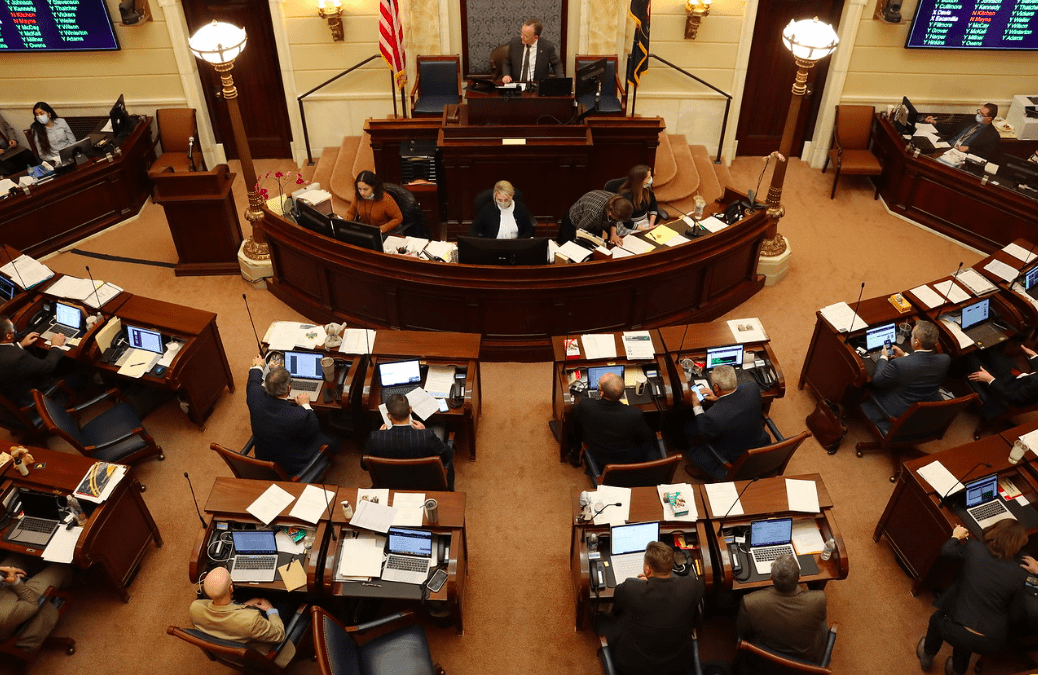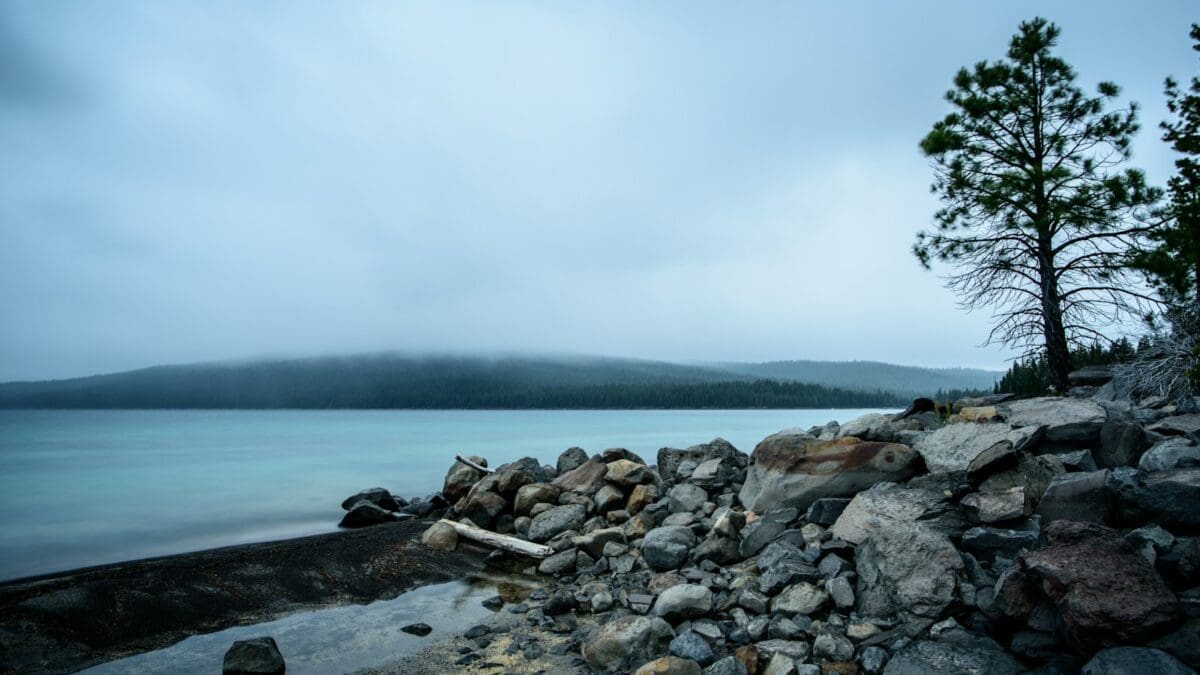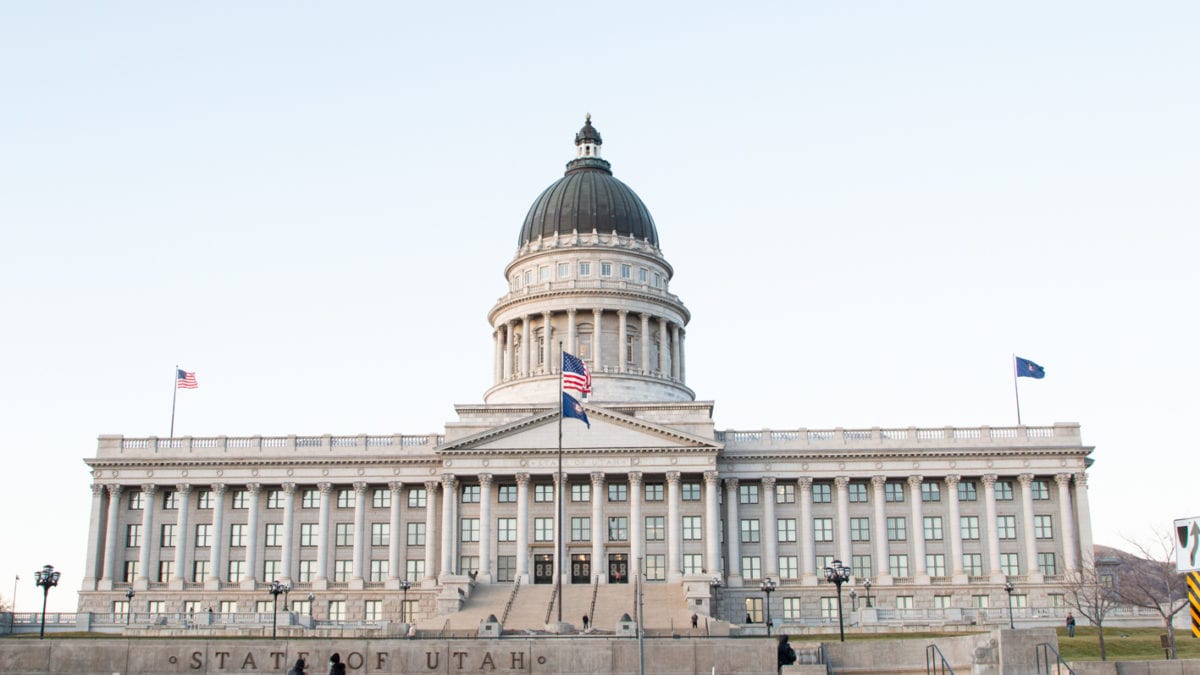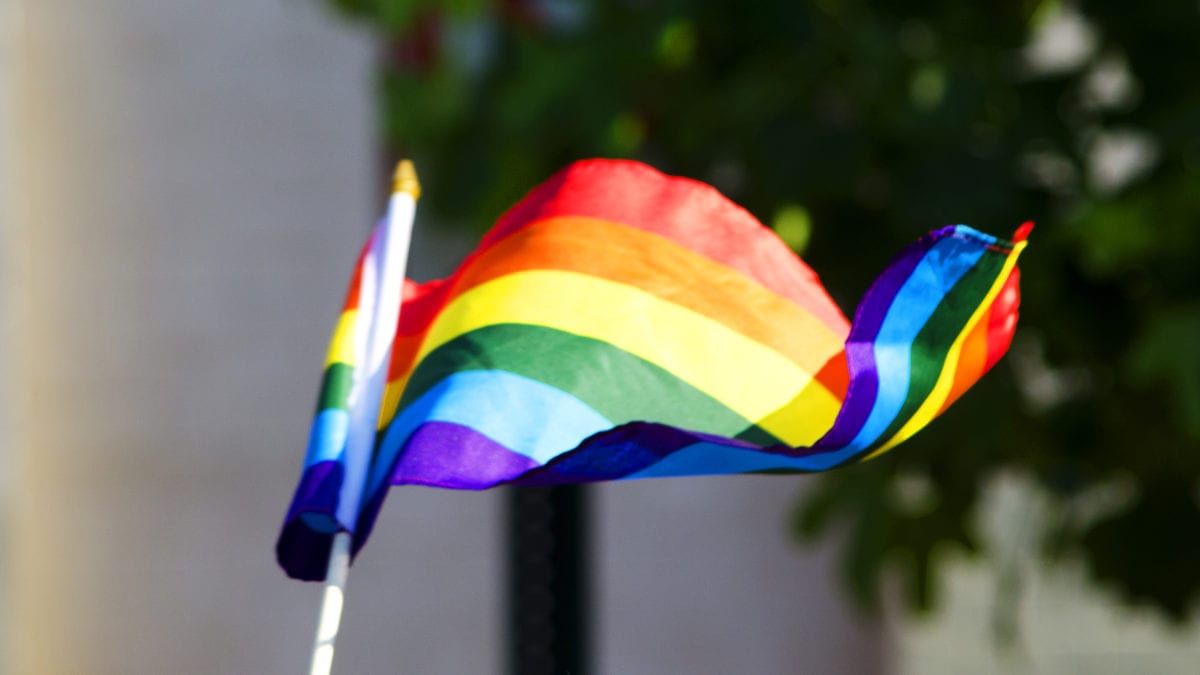Politics
After Utah decriminalized polygamy, some see a culture shift

Utah decriminalized polygamy in 2020, reducing it from a third-degree felony, punishable by prison time, to an infraction on par with a speeding ticket. Advocates and residents of polygamous communities say the move has opened up previously closed societies and convinced more people to report abuse. Photo: Utah Senate.
HILDALE, Utah — Marion Timpson’s own marriages reflect Utah’s recent legal battles over polygamy.
“I married Holly in 2005 and Katie in 2013, and I married Lisa in 2014,” the polygamist told FOX 13 News, referring to his wives.
One of his marriages took place shortly after a federal judge struck down Utah’s anti-polygamy laws. Reality TV polygamist Kody Brown and his wives sued the state and won, effectively decriminalizing plural marriage as a religious belief. Then a federal appeals court reinstated the bigamy law and the Utah Legislature passed a law that re-criminalized bigamy.
For Timpson and his family, the shift again was too much.
“Eighteen months later, when the politics changed again, on that ruling, she (Holly) said ‘Let’s get out. We’re leaving Utah,’” he recalled in an interview with FOX 13 News.
The Timpsons moved from the Salt Lake City area down to Colorado City, Arizona.
In 2020, the Utah Legislature passed a law to decriminalize polygamy, reducing bigamy among consenting adults from a third-degree felony, punishable by prison time, to an infraction on par with a speeding ticket.
“That’s for consenting adults,” said Lt. Governor Deidre Henderson, who sponsored the bill when she served in the Utah Senate. “Anyone who still commits bigamy, the traditional sense of bigamy where they’re married to someone and they go fraudulently marry someone else, that’s a third-degree felony. Or if they try to coerce someone into purporting to marry them? That’s also a third-degree felony. We also kept a second-degree felony for anyone who engages in bigamy and also commits other crime like fraud or sexual abuse, things like that.”
Henderson argued that it was time the state try something different to reach people within closed, polygamous societies to get them to report any crimes.
“Bigamy had been a felony in Utah since 1935 and it clearly didn’t do what the law, I think, or the people who put that law intended it for it do. It didn’t stop people from engaging in polygamy. It ended up driving people underground, created a wall of secrecy surrounding some communities,” she said.
The change in approach was significant, given Utah’s long history with polygamy. Plural marriage has been woven into the fabric of Utah. Mormon pioneers settled here after being driven out of other states in part because of their beliefs in plural marriage. In order to get statehood, Utah had to prohibit polygamy. It’s in the state constitution. Polygamists were imprisoned.
In 1953, authorities raided “Short Creek” — the name for the border towns of Hildale, Utah, and Colorado City, Arizona — and split apart families, putting polygamists in jail. In the early 2000s, the state of Utah launched a number of prosecutions of people for abuses within polygamy. In some cases, prosecutors tacked on a bigamy charge.
But in those prosecutions, cooperation was always difficult — even if the state was trying to combat horrific abuses. Sister-wives refused to testify against their husbands and others in the community refused to help. Henderson said her goal was to open up the closed societies to report abuses by bringing polygamy out into the open, without fear of criminal charges for everyone just for living a religious belief.
“We had a serious human rights crisis that needed to be addressed,” she said. “So that’s what my legislation in 2020 was meant to do.”
The legislation personally benefited Alina Darger, a plural wife who is the executive director of Cherish Families, a nonprofit based in Hildale and Colorado City. She advocated on Utah’s Capitol Hill in support of the bill.
“People can come forward and say ‘I’m part of the state of Utah. I’m part of this society. I have a proud heritage, too. I belong,‘” she said.
Cherish Families runs a food pantry, offers parenting and healthy relationship classes, mental health support and other services for people in plural families.
“We have no opinion about their religion or their families, that we were here to serve them and help them make their own decisions,” said Shirlee Draper, Cherish Families’ operations director. “That was really based on experiences we all had, experiences I had trying to leave the FLDS.”
The Fundamentalist LDS Church, one of Utah’s largest polygamous groups, was based in Hildale and Colorado City. Its leader, Warren Jeffs, is serving a life sentence in a Texas prison for child sex assault related to underage marriages. Since Jeffs’ imprisonment, and as a result of a number of other cultural and political shifts, the communities have dramatically changed. People who live in the communities say it is more open now than ever before.
Darger said part of that is because of the change in Utah’s anti-polygamy laws which has led to many in plural families to open up about their lives. She said people are stepping forward to report abuses.
“We’re absolutely seeing it and we’re absolutely seeing it come top down in different groups,” Darger said.
Cherish Families said in 2020, it provided assistance to 1,126 people and offered 24,951 services. In 2021, the number rose to 1,356 people and 46,083 services.
Tonia Tewell, the executive director of Holding Out Help, said she has also seen an increase in abuse reports. But Tewell said she does not believe it is because of the law change.
“We’ve had a 25% increase, our abuse rate is up to 95% and not a single of those clients have said we’ve landed here because the law has changed,” she told FOX 13 News. “I hope I am wrong and this is really going to do what everybody is saying it’s going to be doing. But I don’t think it has. I don’t think it’s accomplished what the state hoped.”
Tewell, who testified against the decriminalization bill, said she fears abusers within polygamous communities have become emboldened because there is no longer the threat of felony charges against them. She argued the state has yet to address the “root problems” within polygamous communities.
“Pedophiles are still pedophiles. Abusers are still abusers. And traffickers are still trafficking clients and until that systemic issue has been dealt with, we’re still perpetuating the problem,” she said.
Holding Out Help said it served 167 clients in 2020. That number climbed to 203 in 2021, with more coming in. The group recently opened another shelter in the Draper area to meet growing demand for services.
But asked if polygamy should be re-criminalized, Tewell said she was not so sure.
“I really don’t know either way. All I know is we’re not really dealing with the core issue. A lot of the people living in these communities are my friends and for me to go and say i want them to be felons doesn’t feel right, either,” she said. “I can’t say one way or another. I don’t know if I’m right when I was going up against it on Capitol Hill. I just know what my clients were saying and I had to be the voice for them.”
Lt. Gov. Henderson said the fact that more people were reporting abuses spoke to the decriminalization effort working.
“I think any increase in reporting, any increase in services that are requested, points to the success of the law not to its failure,” she told FOX 13 News.
While the bill was designed to address crimes within closed societies, there has also been a larger cultural shift in polygamous communities. Where there was once a fear that if you spoke too much about your families you would invite police and prosecutors cracking down, now there is more of a freedom to speak openly.
“We don’t have the same worries we did a few years ago. Really, and truly, you can be more honest about your lifestyle,” said Ruth Williams, a plural wife in Centennial Park, Ariz. “There’s a lot of work to be done. We have a long ways to go.”
Williams is a member of the Centennial Park Action Committee, a group of plural wives who pushed for decriminalization and challenged prosecutors who sought to stigmatize polygamists. Marlyne Hammon, another member of the group, said they spoke out when Utah Attorney General Mark Shurtleff began addressing abuses within polygamous communities but failed to include plural families.
“We ladies said ‘That’s enough of that. We’ve got to stand up and speak for ourselves,‘” she said.
Hammon, who grew up in the 1953 raid, said she has also observed a change in how others view people who live polygamy. She said many had to fight for it.
“I feel a more openness and a friendliness and an ability to interact with people without that hanging over, like they used to look at polygamists,” Hammon told FOX 13 News.
But there are still some fears that Utah could change course again when it comes to the politics surrounding polygamy.
“I did have a lot of people in the community saying ‘Let’s hold off. Don’t say who you are, don’t post your family pictures,’” Darger said.
Timpson said he has been open about his family, posting photos on social media. He has observed co-workers change their opinions of his lifestyle and now defending his family.
“As soon as you get rid of the pressures to close down a polygamous society and open it up?” he said. “Remove those pressures, then you can acutely prosecute those issues that then remove the stigma.”
But Draper cautioned it will not happen immediately.
“I can personally see a lot more people coming out and a lot more people reporting crimes,” she said. “But it’s going to take some time to undo some of the harms. It’s going to take a generation.”
















